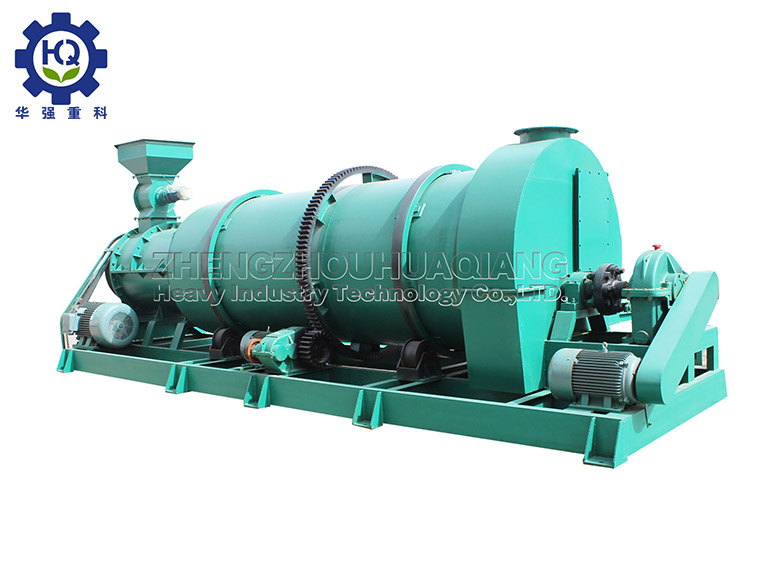Humic acid fertilizer plays an important role in maintaining soil activity. In industry, manure, straw, mushroom residue, sawdust and other wastes are fermented by organic fertilizer production equipment, and then processed into organic fertilizer. Such organic fertilizer products are rich in humic acid.

1. Humic acid can improve nitrogen use efficiency
Nitrogen fertilizer is an indispensable fertilizer for plant growth, mainly urea and carbamine. When urea and ammonium bicarbonate are applied to the field, they will soon lose with the air and water flow. Only 30% of the nitrogen can be absorbed and utilized by crops. The aromatic core, hydroxyl group, carboxyl group and other acidic functional groups in humic acid can react with nitrogen to form stable new ion groups. These complexes remain in the soil for a long time, and gradually decompose and release nitrogen element, so that plants can slowly absorb it.
2. It has synergistic effect on phosphate fertilizer
When the available phosphorus fertilizer is applied into the soil, the phosphorus element will be fixed by the metal ions in the soil, so that the available phosphorus can be transformed into delayed phosphorus or ineffective phosphorus. The acid functional groups such as aromatic nucleus, hydroxyl group and carboxyl group in humic acid can react with phosphorus element to make it become soluble phosphorus, which increases the activity of phosphorus element and is easy to be absorbed by plants. According to statistics, the fertilizer efficiency of phosphate fertilizer can be increased by 5-10% after adding humic acid fertilizer.
3. It has synergistic effect on potassium fertilizer
The functional groups in humic acid can also absorb and store potassium ions, which can not only prevent the loss of potassium ions with water in sandy soil, but also prevent the fixation of potassium in cohesive soil, which can improve the utilization rate of potassium fertilizer by about 5%. In order to improve fertilizer efficiency, NPK fertilizer and humic acid organic matter will be processed by fertilizer granulator in organic fertilizer production process.
4. It has the effect of retaining water and fertilizer
Humic acid interacts with calcium ions in the soil to form a flocculent precipitated gel, which can cement the soil together, turning the soil particles into small reservoirs and fertilizer reservoirs that retain water and fertilizer, increase soil voids, and improve Improve soil water and fertilizer retention capacity.